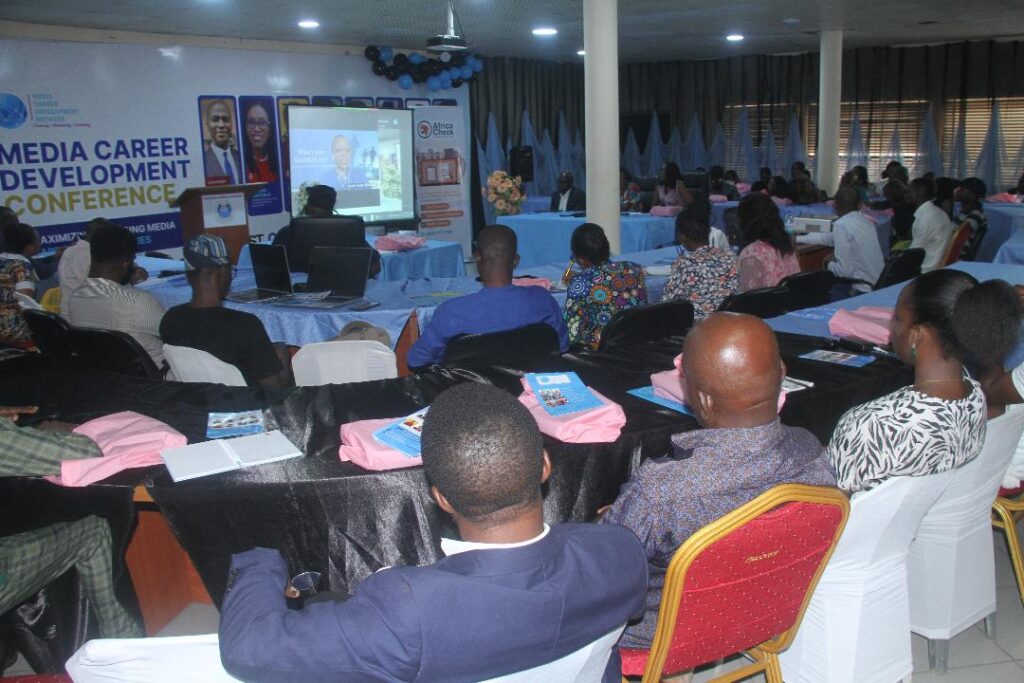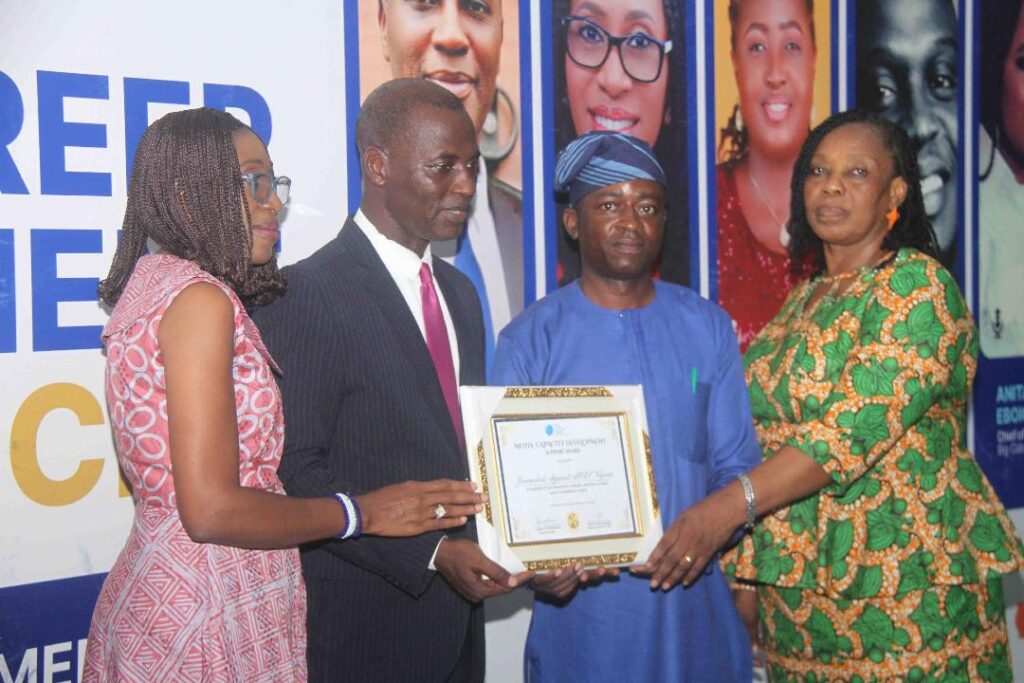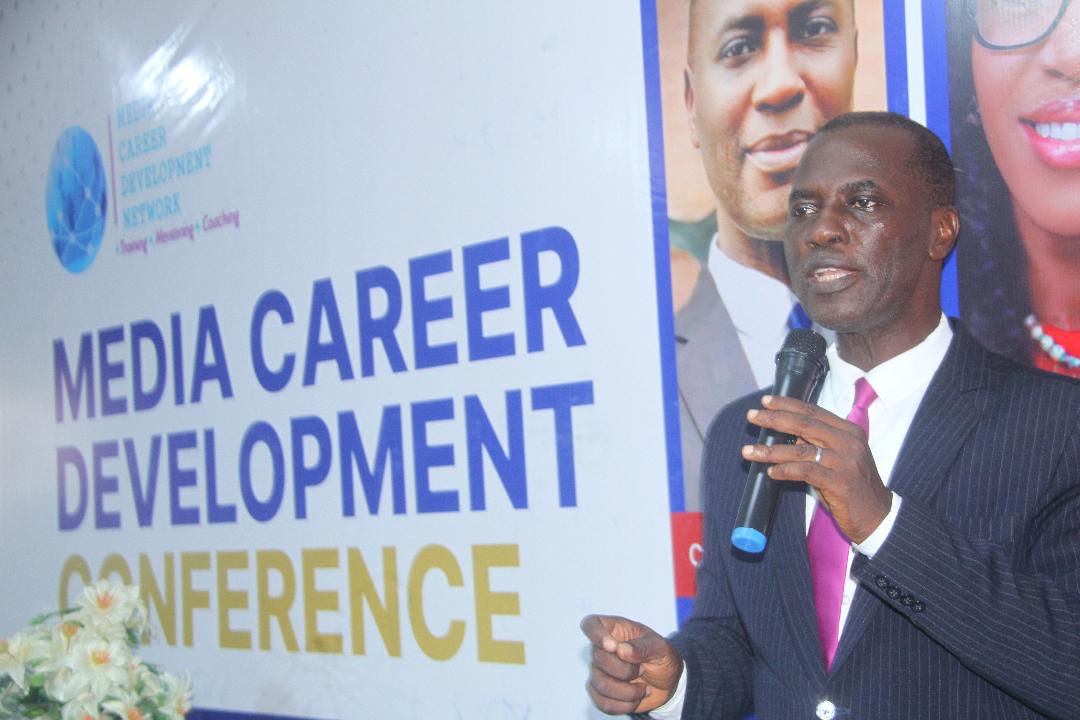By Jemimah Wellington, JKNewsMedia Reporter
OVER100 media professionals in person and online, delved into critical career issues and the evolving demands in journalism.
Experts from diverse fields also shared insights aimed at equipping journalism professionals to navigate the industry’s rapid shifts towards expanding their career horizons.
Similarly, the challenges and opportunities facing modern journalists took center stage.
These, among others, were the focus at the Media Career Development Conference on October 31, held at the University of Lagos.
Hosted by the Media Career Development Network (MCDN), the event also brought together top professionals to share their experiences with the younger colleagues.

MCDN’s Executive Director, Mr. Lekan Otufodunrin, opened the event by urging journalists to seize new paths that align with personal and professional growth.
Also, Professor Oloruntola Sunday, Chairman of MCDN’s Board of Trustees, reiterated the conference’s objective to nurture purpose-driven careers that both inform and uplift society.
Also, the head of department, Mass Communications, UNILAF, Oloruntola highlighted the need for skilled storytellers who can capture impactful narratives in an increasingly competitive field.
Then the keynote address, delivered by David Ajikobi, Nigeria Editor of AfricaCheck, zeroed in on “Expanding Media Frontiers in the Age of Disinformation, AI, and Pandemics.”
Ajikobi emphasized the digital era’s dual impact: while it has democratized access to information, it also demands advanced skills in digital literacy and investigative techniques.
He described AfricaCheck’s pioneering fact-checking efforts, which have inspired other organizations like Dubawa and Fact Check Hub to address misinformation and deepen journalistic integrity.
Ajikobi noted that, especially post-pandemic, there is heightened demand for journalists skilled in data journalism, health reporting, and digital fact-checking to provide clarity amidst misinformation.
Veteran journalist and top media trainer, Taiwo Obe urged journalists to adopt a “Think and Do” mindset, where creating value within one’s role supersedes merely securing employment.
Former Assistant Director of Programmes at FRCN, Funke Treasure, lauded Nigeria’s Coalition of Fact-Checkers for combating election-related disinformation with tools like “fact shields” to counteract misleading claims online.
Anita Eboigbe of Big Cabal Media discussed how the evolving media ecosystem necessitates integrity in storytelling, urging African media to reclaim its voice through collaboration and commitment to truthful reporting.

Jill Giesler, a career coach and media leader from the United States., encouraged professionals to grow through lifelong learning and cultivating communication skills.
Cautioning against AI overreliance, Giesler emphasized the role of AI as a supplementary tool rather than a substitute for journalistic judgment.
She shared her “Work Happy” principles, which advocate positivity, team support, and authenticity as key elements for a fulfilling career.
Kenyan coach Colleta Macharia added that aligning personal strengths and values with career goals can provide a solid foundation for sustained professional growth.
Bosede Olusola-Obasa, CEO of 1st Royal Character and Values Limited, presented her career development model, the “seven ‘I’s”—from introspection to identity—encouraging journalists to engage in intentional self-assessment and continuous learning.
Similarly, Kofoworola Belo-Osagie, development journalist, stressed the importance of acquiring transferable skills like public speaking, data analysis, and multimedia production to stay competitive.
Development communication specialist, Adebisi Adetunji, advocated for multimedia skills like video production, podcasting, and infographics, as these tools enhance storytelling impact and audience engagement.
Nnamdi Obinwa of KPMG shared the “Future of Work” report, underscoring AI’s potential to reshape media careers.
He suggested that media organizations test AI-driven initiatives to maximize productivity while training their workforce on new tools.
At the end of the conference, awards for organizations contributing to media capacity development were given out to recognized organizations.

Thereafter, participants took to social media, sharing how the conference reignited their commitment to integrity, creativity, and professional growth.
Joan Yakubu, a digital content creator, remarked on LinkedIn: “The conference was a reminder to approach journalism with integrity and innovation.”





